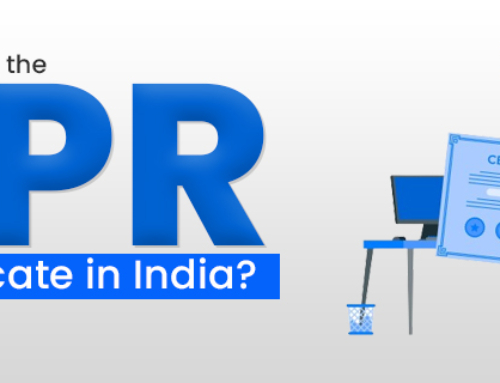In India, the Legal Metrology Act, 2009, plays a crucial role in regulating the packaging and labelling of various commodities. One significant aspect of this regulation is the issuance of the LMPC (Legal Metrology Packaged Commodity) certificate. This certification is essential for businesses involved in packaging and selling goods to ensure compliance with legal standards and consumer protection. Let’s delve into the details of who issues the LMPC certificate in India and the significance of this certification.
Legal Framework:
Contents
- Legal Framework:
- Issuing Authority of LMPC Certificate:
- Significance of LMPC Certification:
- LMPC Certificate Application Process:
- Compliance Requirements:
- Consumer Protection:
- Consequences of Non-Compliance of LMPC Certificate:
- 1. Penalties and Fines:
- 2. Legal Actions:
- 3. Product Recalls:
- 4. Loss of Consumer Trust:
- 5. Market Access Restrictions:
- 6. Business Reputation Damage:
- 7. Loss of Business Opportunities:
- 8. Increased Scrutiny:
- 9. Financial Instability:
- 10. Repercussions on Leadership:
- Conclusion
The Legal Metrology Act, 2009, establishes the legal framework for regulating weights and measures used in trade and commerce. The Act aims to safeguard consumers from unfair trade practices and ensure transparency in transactions. Under this legislation, the LMPC certificate becomes a crucial document for manufacturers and packers.
Read Also This – How to Obtain an LMPC Certificate in Delhi
Issuing Authority of LMPC Certificate:
The LMPC certificate is issued by the Legal Metrology Department, which operates at both the central and state levels. At the central level, the Department of Consumer Affairs, Ministry of Consumer Affairs, Food and Public Distribution, is responsible for overseeing legal metrology matters. At the state level, each state has its own Legal Metrology Department that manages the certification process within its jurisdiction.
Significance of LMPC Certification:
The LMPC certificate signifies that the packaged commodity complies with the legal metrology standards outlined in the Act. It ensures that the product meets prescribed requirements for accuracy and transparency in labelling.
By obtaining the LMPC certificate, businesses commit to upholding consumer rights. Accurate information on labels aids consumers in making informed choices, fostering a sense of trust in the market.
The LMPC certification enhances a business’s market credibility, signalling to consumers, competitors, and stakeholders that the packaged commodities adhere to stringent legal and quality standards.
Non-compliance with LMPC standards can lead to penalties and legal consequences. The LMPC certificate serves as a preventive measure, safeguarding businesses from potential financial repercussions and legal actions.
Businesses seeking the LMPC certificate must follow a systematic application process. Typically, the application is submitted to the respective state’s Legal Metrology Department or the Directorate of Legal Metrology. The application form requires detailed information about the packaged commodity, including its nature, weight, dimensions, and other relevant details.
LMPC Certificate Application Process:
1. Submission to Regulatory Authority:
Businesses initiate the process by submitting the LMPC certificate application to the appropriate regulatory body, such as the state’s Legal Metrology Department or the Directorate of Legal Metrology.
2. Application Form:
The application form is a crucial document that demands comprehensive details about the packaged commodity. It typically includes the following information:
3. Supporting Documents:
Businesses are usually required to provide supporting documents along with the application form. These may include:
Results from quality and safety tests conducted on the product.
Overview of the manufacturing process to ensure adherence to standards.
Documents demonstrating compliance with legal metrology regulations.
4. Inspection and Verification: Upon receiving the application, the Legal Metrology Department conducts thorough inspections to verify whether the packaged commodities adhere to the prescribed standards. This involves checking the accuracy of weights and measures, ensuring proper labelling with essential information such as MRP (Maximum Retail Price), manufacturing date, expiry date, and net quantity.
Read Also This – A Comprehensive Guide to LMPC Certificate Documents & Benefits
5. Fee Payment: Businesses are required to pay the prescribed fees associated with the application process. The fee structure may vary based on factors such as the nature of the commodity and the scale of production.
6. Review and Approval: Once the regulatory authority completes the inspection and verifies the submitted documents, the application undergoes a review process. If everything is in compliance with legal metrology standards, the LMPC certificate is approved.
7. Issuance of Certificate: Upon approval, the LMPC certificate is issued to the business, indicating that their packaged commodity adheres to legal metrology regulations.
8. Renewal and Compliance: Businesses must be aware of the certificate’s validity period and ensure timely renewal. Compliance with ongoing legal metrology standards is crucial to maintaining the certificate.
By following this systematic application process, businesses can secure the LMPC certificate, demonstrating their commitment to quality and compliance with legal metrology regulations.
Compliance Requirements:
To obtain the LMPC certificate, businesses must comply with various statutory requirements outlined in the Legal Metrology (Packaged Commodities) Rules, 2011. These rules specify the labelling requirements, display of statutory declarations, and other essential aspects that contribute to fair trade practices and consumer protection.
Consumer Protection:
The LMPC certificate is not only a regulatory requirement but also a means to protect consumers. By ensuring that packaged commodities meet specified standards, consumers can make informed choices about the products they purchase. The accurate representation of quantity and other essential information on the label enhances transparency and builds trust in the marketplace.
Consequences of Non-Compliance of LMPC Certificate:
Failure to obtain the LMPC certificate or non-compliance with legal metrology standards can lead to severe consequences for businesses. Penalties and legal actions may be imposed, affecting the reputation and financial stability of the non-compliant entities. Therefore, businesses are incentivized to adhere to the certification process and maintain the required standards.
1. Penalties and Fines:
Non-compliance often results in the imposition of financial penalties. Businesses may be required to pay fines for failing to obtain the LMPC certificate or violating legal metrology standards.
2. Legal Actions:
Regulatory authorities have the authority to take legal actions against non-compliant businesses. This can include lawsuits, injunctions, and other legal proceedings aimed at enforcing compliance.
3. Product Recalls:
Non-compliance may lead to product recalls, forcing businesses to remove their products from the market. This can incur significant costs and damage the reputation of the brand.
4. Loss of Consumer Trust:
Failing to meet legal metrology certificate standards can erode consumer trust. Customers may associate non-compliance with poor quality and safety, leading to a decline in brand reputation and customer loyalty.
5. Market Access Restrictions:
Non-compliance may result in restrictions on market access. Regulatory bodies may prohibit the sale or distribution of non-compliant products, limiting the business’s market reach.
6. Business Reputation Damage:
Public perception is crucial for business success. Non-compliance to LMPC Certificate can tarnish a company’s reputation, affecting its standing in the industry and making it challenging to rebuild trust.
7. Loss of Business Opportunities:
Non-compliance may lead to exclusion from certain business opportunities, partnerships, or contracts. Many entities require compliance with legal standards as a prerequisite for collaboration.
8. Increased Scrutiny:
Non-compliant businesses may face heightened scrutiny from regulatory bodies, leading to more frequent inspections and audits. This can disrupt regular business operations and increase compliance-related costs.
9. Financial Instability:
Accumulation of fines, legal fees, and other costs associated with non-compliance can lead to financial instability. Businesses may struggle to cover expenses, impacting overall financial health.
Read Also This – What Is Procedure, Validity & Renewal For Seeking LMPC Certificate For Import
10. Repercussions on Leadership:
Company executives and leadership may face personal liability for non-compliance to LMPC Certificate, including legal consequences. This adds an additional layer of accountability to ensure adherence to legal metrology standards.
In summary, the consequences of non-compliance with LMPC standards extend beyond financial penalties, affecting various aspects of a business. Adhering to certification processes and maintaining legal metrology standards is essential for preserving a company’s reputation, financial stability, and long-term success in the market.
Conclusion
In conclusion, the LMPC certificate in India is a vital component of the legal metrology framework, ensuring fairness and transparency in trade practices. The Legal Metrology Department, operating at both central and state levels, plays a pivotal role in issuing these certificates. Businesses must navigate the application process, adhere to compliance requirements, and undergo inspections to obtain the LMPC certificate. Ultimately, this certification serves the dual purpose of regulatory compliance and safeguarding consumer interests, contributing to a more accountable and ethical marketplace in India.






